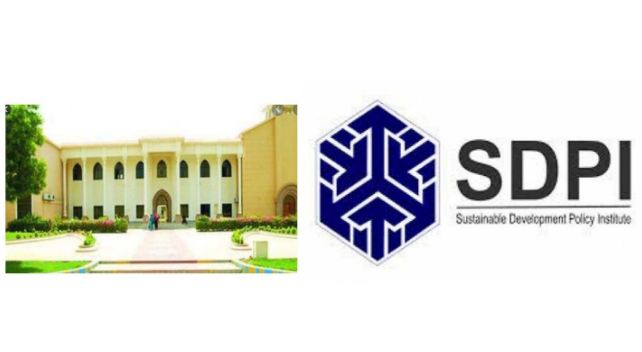ISLAMABAD, May 19 (DNA): Rolling in from Islamabad, on May 19, Dr. Vaqar Ahmed, the Joint Executive Director of the Sustainable Development Policy Institute (SDPI), gave a shoutout to the potential of kicking trans fats to the curb and whipping up some healthier grub for folks in Pakistan. He was all about embracing iTFA-free alternatives and giving products a makeover to match up with changing rules and keep consumers happy and healthy.
At this jam session hosted by SDPI, named ‘Empowering SMEs; Training on reducing industrial trans fatty acids for a healthier Pakistan’, Dr. Ahmed put the spotlight on the need to dial down on those factory-made trans fatty acids (iTFAs). He made it clear: we need smart plans and solid rules to tackle this issue head-on.
The chat zoomed in on the nitty-gritty – where these bad fats come from, how they mess with our health, and what we can do to kick them out of our kitchens. Dr. Ahmed was all about laying down the next steps for both the little guys (that’s you, SMEs!) and the big guns in the government. SMEs gotta soak up all this know-how and make it part of their game plan, while the government’s gotta keep the support flowing, making sure everyone’s playing by the rules and cooking up new ideas.
Muhammad Salman from Cargill chimed in, saying this pow-wow was all about making life better for Pakistanis. He pointed out that even though there’s no official rulebook in Pakistan, Cargill’s sticking to the World Health Organization’s (WHO) limits and has cut ties with the oily business. He reminded us that the US got on board with labeling laws back in 2006 and gave businesses the heads-up to cut back on iTFAs by 2016.
Dr. Razia Safdar from SDPI jumped in, talking about how what we munch on affects our health big time in Pakistan. She served up the lowdown: our plates should have a bit of everything – carbs, proteins, and fats – but not all fats are made equal. Some are like superheroes (monounsaturated and polyunsaturated fats), but others, like trans fats, are more like villains, causing all sorts of health havoc.
She sounded the alarm on iTFAs lurking in stuff like margarine, banaspati, and baked goodies, linking them to serious health issues like diabetes and high blood pressure. And with Pakistan facing a crisis on that front, cutting back on trans fats could save lives.
Dr. Tahira Siddique from the Islamabad Food Authority pointed out that trans fats have been a hit since way back in the 20th century, thanks to their taste and staying power. WHO stats show Pakistan’s gulping down trans fats like nobody’s business, second only to Egypt in the Eastern Mediterranean Region. WHO’s on a mission to kick these bad fats to the curb through their ‘REPLACE’ program, and lots of countries are jumping on board.
Dr. Syed Muhammad Ghufran Saeed, holding it down at the University of Karachi, shared some strategies for kicking trans fats to the curb. He spilled the beans on how the trans fat content can change depending on how it’s made, and pointed out that more than a quarter-million folks meet their end each year thanks to these bad fats. He broke down five ways to cut them out or dial them down, from tweaking formulas to genetic tinkering.
Farah Ather from the Punjab Food Authority wrapped things up by sounding the alarm on Pakistan’s NCD crisis. She dropped the bomb that six out of ten deaths here are down to NCDs, with heart problems leading the charge.
The whole shindig was about giving SMEs the 411 on trans fat dangers and showing them the road to healthier products. By helping these small fries meet the rules on trans fats, Pakistan’s serving up a healthier meal for everyone.












